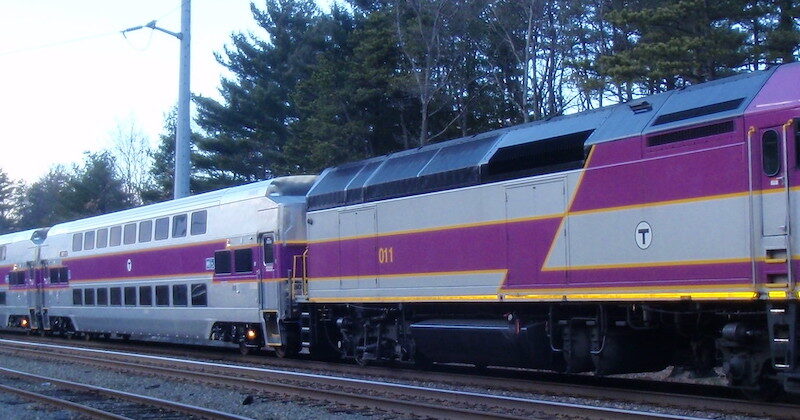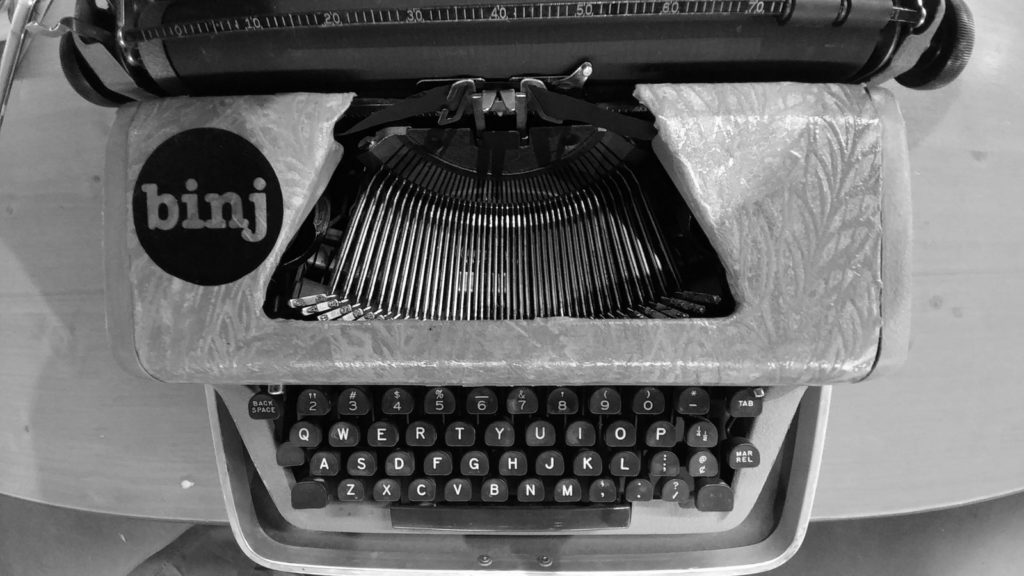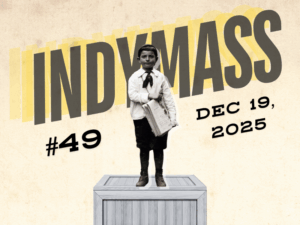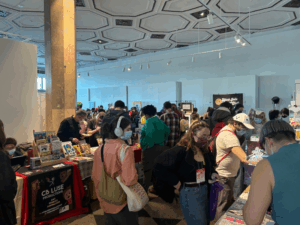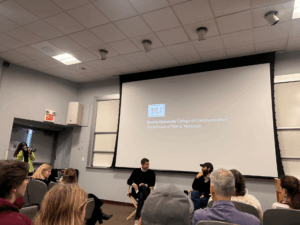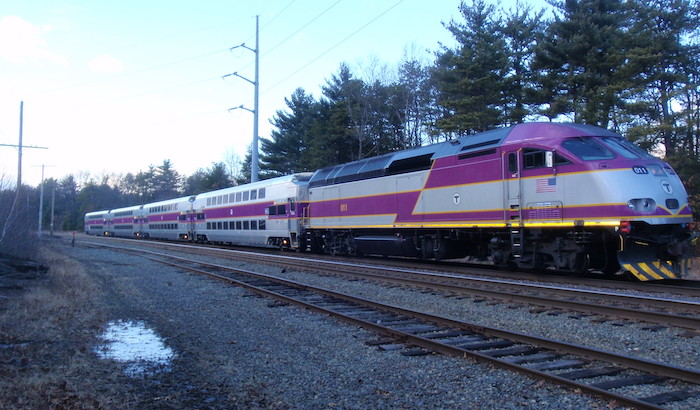
Family Of Woman Killed By Commuter Rail Sues MBTA For Crash Records
There are many stories about people getting hurt and killed by trains. This one’s about what their families may endure in the pursuit of answers and justice
Last January, a 68-year-old woman driving through Wilmington died when a Commuter Rail train slammed into her car as she was going over the railroad tracks. The crossing arm failed to come down, which MBTA officials quickly blamed on “human error.” A worker for Commuter Rail managers Keolis was placed on leave.
But for more than a year, the T has not released further information about the crash and its subsequent investigation. And when the family of the woman made a public records request for the T’s reports, the agency rejected the request, saying releasing those documents would hurt an ongoing investigation.
The family is now suing the T for those records and preparing a wrongful death suit, according to attorney David Hoey. He said it’s important for the family to get this information so they can understand what happened, and criticized the T for holding back.
“It gives the impression that they’re hiding something,” Hoey said.

Crash and “error”
Roberta Sausville Devine was driving on Middlesex Avenue near the North Wilmington Commuter Rail depot on Jan. 21 when an inbound Haverhill train struck her car, killing her. Hoey said the train was traveling at approximately 60 mph and pushed the car more than 300 yards.
The crossing gates had not gone down as the train approached, letting Devine drive on the tracks. The next day, then-MBTA General Manager Seven Poftak attributed the gates not working to “human error,” saying a Keolis worker had turned off the railroad’s safety system an hour before the crash to perform maintenance, but did not turn it back on when they were done.
“Following the testing, our preliminary finding is that the safety system was not returned to its normal operating mode. This failure resulted in the crossing gates not coming down in a timely manner as the train approached Middlesex Avenue,” Poftak said in a statement. “Investigators have not found any defects nor any other problems with the various elements that comprise the infrastructure of the railroad crossing system.”
In February, Wilmington officials said the crossing gates again failed to work at the Middlesex location, with a gate coming down and remaining stuck. T officials said the gates automatically lowered as designed after melting snow led to large puddles in front of the crossings. Poftak also said Keolis changed its safety testing policy, requiring dispatchers get the go-ahead from maintenance workers that the safety systems are back up and running and workers need to watch the next train go by to ensure the gates are operating.
The request
Hoey said Devine had a strong bond with her five siblings and though her husband predeceased her, she was also very close to her two stepsons, Daniel and James Devine, who are managing her estate. According to a lawsuit filed in Suffolk Superior Court this January, the Devines told the T in May and September of 2022 that they were planning to file a wrongful death lawsuit, but in early October they participated in a mediation session with the agency and Keolis officials. The Devines’ lawsuit claims that was at the request of the MBTA, which the MBTA denies in its response to the lawsuit.
Two weeks before the planned mediation, the Devines filed a public records request for “all incident reports, accident reports, crash reports, photos, video diagrams, witness statements and dispatch logs pertaining to the incident,” according to the lawsuit.
“In mediation we need to know the facts of the case,” Hoey said in response to questions for this article. “It’s premature to mediate because we do not know all of the facts. We know what happened, we don’t know why it happened. There could be facts that benefit the T or Keolis that I don’t know … We know enough that a wrongful death case can go forward but we don’t know all the facts. This is a good start to this case—hey MBTA, show your cards.”
The T requested more information and the Devines spoke with a member of the T’s claims litigation department in late September, but did not get any information before mediation. And when they did get a response in early November, it was a flat denial.
“It is the MBTA’s position that disclosing the requested record prior to the investigation’s conclusion is likely to harm the ongoing investigation efforts by the MBTA and/or other investigative entities,” the MBTA wrote. “In particular, disclosing the accident report, photos, videos, and witness statements at this time is likely to jeopardize the cooperation of witnesses, hinder investigative efforts by revealing potential leads, or lead to interim conclusions that may change based on additional facts that are gathered over the course of the ongoing investigation, harm a potential prosecution.”
The agency continued, “Therefore, the MBTA is claiming exemption to withhold the accident report, photos, videos, and witness statements because disclosure ‘would probably so prejudice the possibility of effective law enforcement that such disclosure would not be in the public interest.’”
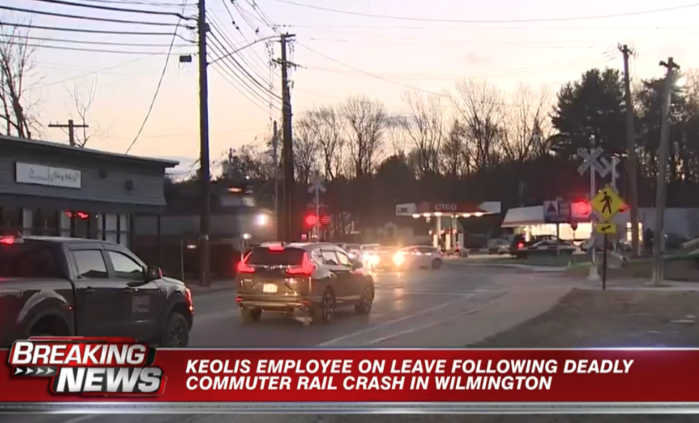
Fading memories
Hoey said the criminal investigation should not affect his clients’ wrongful death case, and that it is important he gets investigative information while it’s still somewhat fresh.
“If there’s going to be a criminal investigation, that can go on one path, the wrongful death case doesn’t need that to pursue its own path,” Hoey said. “What would worry me is the longer time goes by and the less access I have to people, memory starts to fade. I’d like to know who all the witnesses are—all the people they interviewed, the conductor of the train—so I can interview people and get depositions before memory is faded two or three years from now. I want to preserve things, things get lost.”
While there are exemptions for disclosure under the state public records law, Hoey said the T isn’t meeting them. The specific exemption for investigative materials is not a “blanket” excuse, and officials need to give details about what parts of their investigation are confidential and why, according to the lawsuit, which criticizes the T for withholding information.
“Since the incident, the defendants have engaged in a pattern of activity designed to prevent the public generally—and the plaintiffs in particular—from obtaining information about the incident, its cause, and the defendants’ potential liability,” the lawsuit states. “The defendants’ reliance on the exemption … was a ruse designed to avoid liability.”
Hoey said he filed the lawsuit because of the records request denial, and it demands the T produce those records. MBTA spokesperson Joe Pesaturo said it is MBTA practice to not comment on matters related to pending litigation and ongoing investigations. But in a response to the lawsuit filed at the end of April, the T doubled down.
The response was filed by outside counsel John Bonistalli, who the T has paid $3.8 million since 2010, according to public finance documents, and once again claims the investigative exemption for denying the record release. That particular exemption exists under state law, but the response also claims exemptions which cover public utility trade secrets, personal employee notebooks, and retirement board member financial interest statements.
Hoey said the T should have to give a basis for that broad rejection of disclosure. Meanwhile, Sausville Devine’s family is still waiting for more information about her death.
“They want answers,” Hoey said. “They want to know why this has happened.”

